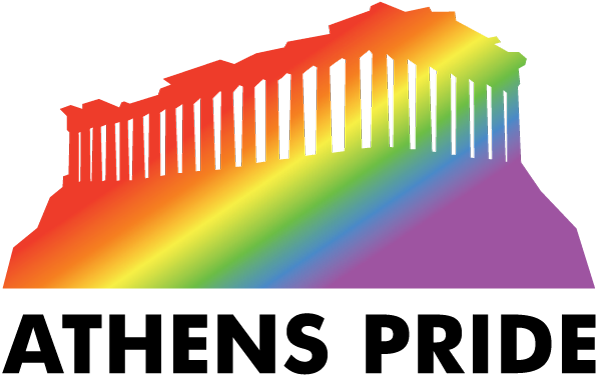THE WORLD AS STONEWALL TURNS 40
By William Urich
When Moscow again attempted to have their Pride on May 16th, 2009 despite the ban, the messages out of Russia indicated that 40 people were arrested. Those 40 people were arrested in the violence of yet another failed attempt to encourage human rights equality in Russia. What a fitting number: one arrest at Moscow Pride for each anniversary year of the Stonewall Riots.
It is ironic that this year, Moscow was host to the (heavily gay) Eurovision Song event. Moscow officials wanted this Eurovision event to show how far the country has come since the fall of the totalitarian Soviet Union, primarily in the area of Human Rights. However, once again and for the fourth consecutive year, Mayor Yuri Luzhkov banned a peaceful Pride assembly resulting in the fore mentioned forty arrests. What Moscow’s government has shown us about the state of human rights in Russia as the world watched? How far they’ve come, indeed.
Similarly in Budapset, Chisinau faced a similar rejection of Pride by their governing officials once again. Budapest continues to face discrimination against Pride attempts. Queers in Sofia have gone so far as to keep their Pride event a secret in efforts to minimize the anti-gay activity that is surely expected in Bulgaria’s capital city.
In Beograd, where a 2001 first Pride attempt was met with an overrun of anti-gay protesters, brutal beatings and lack of police protection made another unsuccessful Pride attempt in 2004. There was no Pride there until September of last year and again, it was met with more bloodshed, but there was a Pride!
As in Eastern Europe, Pride attempts in other parts of the world remain difficult and fraught with danger. Iranian and Iraqi Queers are still openly hunted and murdered with impunity. The only change there is that there has been an increase in world awareness and public outrage at this obscene horror. For some, there is escape through asylum-seeking efforts to safety in other countries, but those who actually do escape to freedom are few in number.
Despite a deeply entrenched Catholic belief system in South America, all but Guyana (where gay men still face life imprisonment) have legalized homosexuality. In Argentina, Brazil, Columbia, French Guyana and Uruguay there exists some level of same-sex union recognition. In Mexico, homosexuality has been legal since 1862 and same-sex relationships are recognized in Coahuila and Mexico City. Belize is the only Central American country which still criminalizes homosexuality with a prison sentence of up to 10 years. Nicaragua and Panama legalized homosexuality last year but there is no recognition of same-sex unions in any Central American country. In fact, in Honduras there is a constitutional ban same-sex unions.
The situation in the Caribbean varies from island to island. Antigua, Barbados, Dominica, Granada, Jamaica, St. Kitts, St. Lucia, St. Vincent and Trinidad and Tobago still criminalize homosexuality with penalties ranging from 10 years to life in prison. Jamaica still leads the area in gay bashing and unprosecuted murders of Queers. Although there have been attempts to tone down the anti-GLBTI lyrics in Reggae music, many within the Jamaican music industry still advocate hunting, catching and killing “the batty boy.” We still have much work to do throughout that entire region.
Asia has seen little improvement for GLBTI people with some notable exceptions. Nepal has enjoyed major successes in equality through the efforts of Sunil Pant and the Blue Diamond Society. Singapore struck a major victory for equality and visibility with their first Pink Dot Pride event, putting that city proudly on the world Pride map. However, our GLBTI brothers and sisters in Chiang Mai, Thailand were met by red-shirted thugs who viciously thwarted a planned Pride event there despite the country’s history of a more lenient stance on acceptance of sexual minorities. Moreover, both a Pride event as well as an ILGA Asia conference had previously been held in that city. The People’s Republic of China continues to be a land of change and Shanghai celebrated Pride this year.
Throughout most of Africa, unfortunately, we continue to endure the sadness and horror of a hostile environment. In modern India, Queers are now more likely to be publicly ridiculed in the media than arrested.
Before the birth of the modern Gay Rights movement, we existed. We always have and we always will. We avoided the limelight for safety’s sake even though we knew there was more to life beyond the closet doors. We accepted being ignored by the general population aside from the occasional bad joke and negative stereotypes. Stonewall is credited with an open demand for justice and equality, and Pride is the movement of mobilization through visibility which grew out of the Stonewall Riots.
The Cairo 52 are all but forgotten to most people nowadays, but that one single incident can remind us of what Stonewall taught us years ago that some of us seem to have forgotten: there’s a price to pay for our visibility. Nowhere is that more pronounced than in the areas of the world where Pride is still too young to survive on its own. Solidarity with struggling Prides is therefore an ongoing imperative for us all. As a movement, we can be proud of our successes and grateful to those organizations that so wisely and beneficently use their established abilities to help others less able to help themselves.
Although within InterPride there has been modest effort put into supporting Pride around the world, it has not been considered a priority until more recent times. However, through education, financial assistance and firm solidarity, some of our member organizations have shown exemplary effort to encourage and assist growing Prides far beyond their own borders.
Stockholm Pride, Pride London, Atlanta Pride, Vancouver Pride Society, Pride Toronto, San Francisco and San Diego Prides, Warsaw Pride and more have all fostered an increased awareness in Human Rights and equality issues, particularly with regard to Pride organizing in more difficult areas. Whether it’s providing funding and planning assistance, bringing Grand Marshalls and speakers from hostile regions to tell their stories first hand to a shocked but attentive audience, showcasing human rights exhibits and seminars during Pride or merely sending messages of hope and support, we should all strive to follow their fine examples of solidarity.
In the past, we had no voice and we were ignored, or our very existence just plain denied as long as we kept out of sight. Iran’s Ahmadinejad tried this with his absurdly blithering statement, “We don’t have homosexuals in Iran like in your country.” For the most part, our invisibility kept us out of harm’s way. As with Cairo, Moscow and elsewhere, it is only with an increased visibility and demand for increased equality that our struggle has become more widely known and therefore more available to protesters. And therein lays the conundrum: more visibility breeds more anti-gay activity. It’s a double edged sword but a return to the secrecy and embarrassment of a darkened closet is not an option.
Our increased visibility invite unwanted prejudice, ridicule and negative social stigma, which are always visited upon the “different” and lesser numbered groups in society. Clearly, we have been an oppressed minority; indeed, one of many. But as we set our sights at increased visibility to advocate and educate through Pride events, we have became noticed and subsequently subjected to an increase in the continuing ridicule, harassment, legislation and all too often worse treatment. It seems to go with the territory and is part of the price we pay.
While our increased visibility out of the closet and into the light of day begat increased ridicule, we became entrenched in a strugg
le for rights and equality and in some places, our very survival. Even with 40 years of Stonewall behind us and the modest successes we’ve achieved around the world, there are many who pledge to continue to fight us. There is truly safety in numbers and we are fighting back en masse all over the world. We have become our own global solidarity movement.
In Riga, Singapore, Nepal, and more, we’re fighting back. In the space of 5 years, Warsaw has gone from an illegally banned Pride demonstration to hosting EuroPride next year, and Riga held the first Baltic Pride just a few weeks ago. Success to a just cause is inevitable, but, as we have all too often seen, not without a fight. And so we fight back to achieve our victories, and we’re doing it on a global level unprecedented in our movement’s history.
We no longer fight back under the cover of darkened night clubs and evening streets as was done in June of 1969 when the thought of full equality was little more than a dream. Since then, we have fought back through visible massing at Pride events and other venues, IDAHO and DOR demonstrations, our respective courts and legislatures. Visibility has been an integral part of our success thus far in effecting change. The process of change is not a quick one, though.
One by one, attitudes are changing, and with that comes a change in society and the rule of law. One by one, more countries (and states) are seeing the need for equality. Our detractors refuse to grasp the futility of fighting us now; Equality is an inevitability. Despite their attempts, religious fundamentalists and hate-mongering conservative right wing bigots cannot kill an idea once it has seen the light of day. We will not simply go away nor will we be legislated out of existence.
So let them continue to fight us. Bring it on, I say! All over the planet, we have shown that we as a world community of GLBTI people are not going to back down. With increasing numbers and fortitude, our members are massing for the good fight.
Gandhi said it with intuitive accuracy ”First they ignore you, then they ridicule you, then they fight you…..then you win.” And so we shall.
Yours in Pride – William Urich
Chair of the InterPride Committee on International GLBTI Human and Civil Rights.
“All men dream: But not equally. Those who dream by night in the dusty recess of their minds wake in the day to find it was vanity: But the dreamers of the day are dangerous men for they may act their dreams with open eyes, to make it possible.” T.E. Lawrence “The Seven Pillars of Wisdom”
International Association of Pride Organizers
Your Rights, Our Rights, Human Rights
www.interpride.org

